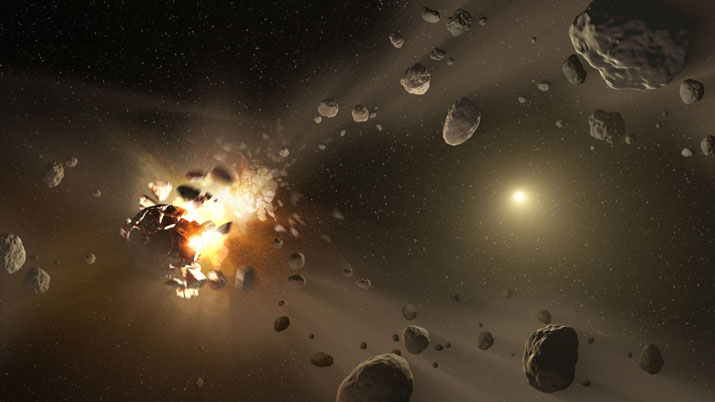
Robohub.org
NASA to host workshop exploring ideas for protecting Earth from asteroids | NASA News Release

NASA has chosen 96 ideas it regards as most promising from more than 400 submitted in response to its June request for information (RFI) about protecting Earth from asteroids and finding an asteroid humans can explore.
The ideas provide the agency with fresh insight into how best to identify, capture and relocate a near-Earth asteroid for closer study and respond to asteroid threats. They include pointers on how to decrease an asteroid’s spin, nudge it away from a path toward Earth, take samples to return to Earth and create activities to heighten public awareness of not only the threat asteroids pose, but the valuable resources and scientific benefits they may offer.
“This rich set of innovative ideas gathered from all over the world provides us with a great deal of information to factor into our plans moving forward,” said Robert Lightfoot, Associate Administrator for NASA. “We’re making great progress on formulating this mission, and we look forward to discussing further the responses we received to the RFI.”
These ideas were submitted by industry, universities, international organizations, and the public. NASA’s selection process involved agency scientists, engineers and mission planners who are formulating details of the asteroid initiative.
NASA’s request for information was the first opportunity for industry and other potential partners to offer ideas for the asteroid initiative.
NASA is planning a public workshop Sept. 30 – Oct. 2 to examine and synthesize the 96 highly rated ideas. The workshop will feature discussions by experts from inside and outside NASA. The other approximately 300 ideas, which were not selected for examination, may be fed into planning for the asteroid initiative.
NASA’s asteroid initiative has two parts: the mission by astronauts to explore an asteroid, and a grand challenge to protect the planet. It is included in President Obama’s fiscal year 2014 budget request for NASA, and leverages the agency’s progress on its Space Launch System rocket, Orion spacecraft and cutting-edge technology development. The mission is a key step in NASA’s plan to send humans to Mars in the 2030s.
To learn more about the RFI selection process and view the workshop outline, visit: http://www.nasa.gov/content/asteroid-initiative-idea-synthesis-workshop
For more information about NASA’s asteroid initiative, visit: http://www.nasa.gov/asteroidinitiative
tags: cx-Exploration-Mining, NASA, Space




